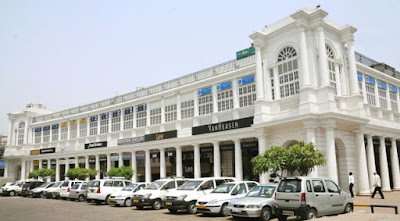A city that is infamous for its unfavourable climate conditions is currently breathing toxic substances – day and night. It is in this connection that the Delhi government pronounced the odd-even auto venture. This framework is additionally called street space apportioning, and it has fizzled pitiably in numerous urban communities including Beijing.
Some of the features of the policy are:
- Private vehicles with number ending in an even digit, will be allowed on the road on dates with even numbers like 0,2,4,8,10 etc.
- Private vehicles with number ending in an odd digit, will be allowed on the road on dates with odd numbers like 1,3,5,7,9,11 etc.
- The ban is only applicable on private cars. Trucks will be allowed in the city only after 10:30pm.
- The frequency of metros plying in the city will increase.
- Violators will have to pay a fine up to Rs. 2000.
I believe that regardless of the great expectations behind it, execution of this approach won't bring the wanted change in the current level of contamination in the city. We are not getting rid of the genuine variable behind the contamination, and that is diesel. The approach might just leave serious ramifications on the financial and social situation of the city.
 |
| DELHI IS THE DIRTIEST CITY IN THE WORLD ACCORDING TO REPORTS |
It is tempting to envision the progressions of our way of life in Delhi would experience, after the city-state government has actualised the odd-even handle on private cars. It won't simply enhance Delhi's air quality, additionally change urban cognizance, and communitarian living, in incomprehensible ways if successful. The state government asserts that this arrangement is a direct answer for the issue of air contamination in the city. Delhi is the world's fifth most populated city, as well as the most dirty city on the planet ( according to International Business Times). Agreeing with a study directed by World Health Organization, Delhi has surpassed Beijing as far as more awful air quality in the city. The enormous number of vehicles in Delhi has been one of the major problems.
 |
| Odd-Even rule successful, says Delhi Police |
The Delhi government's arrangement will constrain private car passengers to adopt other transport to their workplaces each substitute day. It will evidently lessen the significance of private transport as a grown-up toy. Since each substitute day the connection between the car and societal position would be snapped, individuals may find that taking the transport or metro is no critique on their social character and status.
Although, the first few days of the Odd-Even rule were a success and with the free-rides offered by the pollution less mediums of transport, the real test in Delhi is the absence of option method for transportation. Every one of those urban communities around the globe that have possessed the capacity to lessen the quantity of automatics in the city, have a solid and economical open transport framework. Delhi likewise needs the same. There will be no constructive behavioural change in the way individuals drive unless there are adequate choices for them to utilize.
 |
| ODD EVEN RULE SUCCESSFUL, SAYS THE DELHI GOVT. |
These are a few recommendations that I have discovered which might just be more reasonable than the proposed odd-even approach:
 |
| Ample walking space- solution to pollution, says Anurag |
2. The city is in a genuine and urgent need of an a great deal more proficient open transport framework. The administration ought to present more CNG transports with enough seating limit and advantageous travel offices. These transports ought to likewise be crippled and senior-native agreeable. Expanding the recurrence of metro prepares, and presenting more rural trains will likewise offer assistance.
 |
| THE DELHI GOVT. WILL SANCTION 10,000 AUTOS TO PROVIDE UNHAMPERED PUBLIC TRANSPORT |
3. Developing protected and advantageous cycle paths will inspire suburbanites to utilize cycles, which won't just decrease contamination however will likewise be useful to our well being.
4. Most of us won’t dare to park at busy places like Connaught Place if the parking charges range from Rs. 500 – 1,000. Increase in parking charges is a viable solution to keep private motor vehicles away from busy streets.
 |
| Delhi's famous Connaught Place |
5..Diverse shopping destinations and occupied roads of Delhi ought to be made walker just. This will dishearten individuals from taking their autos out when they are going for shopping, in this manner lessening extensive measure of contamination. We ought to focus on making answers for issues instead of issues for arrangements.
ABOUT THE AUTHOR :-
The author, Anurag Sengupta, is a first year B.Sc. student in hospitality management from Institute Of Hotel Management, New Delhi, Pusa. In his free time he likes reading books and going through blogs. He is a blogger himself, a freelance photographer and a guitarist. Some of his other articles are as follows :-
http://express5515.blogspot.in/2015/11/village-india-new-concept-in-tourism.html




Impressive.. Carry on...
ReplyDelete